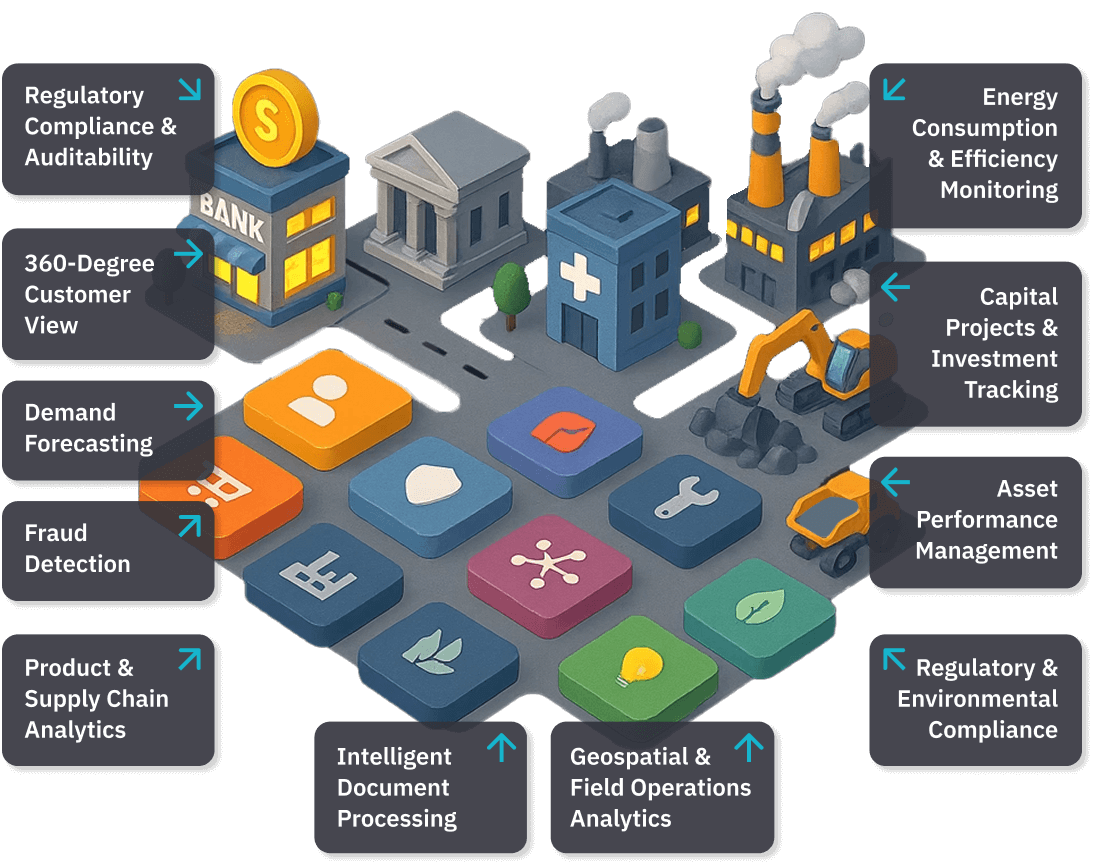On-Demand Webinar
Data Vault on Microsoft Azure – Benefits, Key Considerations & Best Practices
Whether you are already on Azure or considering a shift, this webinar will give you the clarity to decide whether Data Vault is the right architectural approach for long-term data success. Learn about the benefits, challenges, and best practices of combining Azure and Data Vault in modern enterprise environments.

Europe
Option 1:
Monday, 18 November | 9:30pm GMT | 10:30pm CET
Option 2:
Wednesday, 20 November | 7:00am GMT | 8:00am CET
North America
Option 1:
Monday, 18 November | 4:30pm EST | 1:30pm PST
Option 2:
Wednesday, 20 November | 2:00am EST
Tuesday, 19 November | 11:00pm PST
Australia
Option 1:
Tuesday, 19 November | 8:30am AEDT
Option 2:
Wednesday, 20 November | 6:00pm AEDT
Register via the form below.
Can't make either time? Register anyway and we will send you the recording afterwards.
Is Azure + Data Vault the right fit for your organisation?
Many enterprise teams are heavily invested in Microsoft tools and see Azure as the logical next step for cloud data warehousing. Others are already operating in Azure and want to ensure they are using the most scalable, auditable, and future-proof modelling approach.
In this on-demand webinar, we explore the strategic fit between Data Vault and Microsoft Azure — including business benefits, architectural considerations, risks, and how automation helps you deliver faster without creating technical debt.
35 minutes | On-demand | Free to watch

What you will learn
1.
Why Microsoft Azure is a strong foundation for enterprise data platforms
2.
Where Data Vault fits into a sustainable, cloud-native architecture
3.
How the combination supports analytics, AI, governance, and scalability
4.
The role of automation in reducing risk and speeding up delivery
5.
What to watch out for — and how to avoid common pitfalls
Who should watch
This webinar is designed for business and technology leaders making strategic decisions about enterprise data management and architecture.
You will find it valuable if your organisation:
- Is currently running on Azure or is considering Azure as part of a broader Microsoft ecosystem investment
- Needs a robust, future-ready model for integrating and managing data at scale
- Wants to assess the benefits and implications of adopting Data Vault 2.0
- Is exploring automation tools that integrate natively with Azure without vendor lock-in
Access the webinar now to find out if this is the right approach for your strategy

Meet your presenters

Julien Redmond
CEO of IRiS & Ignition
Julien leads the team behind IRiS, a purpose-built Data Vault automation platform designed for Azure. With extensive experience across enterprise environments, he helps organisations align delivery with long-term strategy — without overcomplicating it.

Alexander Lai
Principal Architect, Ignition
Alex works hands-on with enterprise data teams to implement scalable platforms using Azure and Data Vault. He brings a grounded, practical perspective on what works — and what to avoid — in real-world environments.
Frequently asked questions
Azure offers a scalable, cloud-native foundation that aligns well with enterprise IT strategies. Key benefits include:
- Elastic performance and pay-as-you-go infrastructure, reducing reliance on hardware
- Integrated tooling across data warehousing, pipelining, governance, and AI
- Seamless fit with existing Microsoft ecosystems, including Power BI and Active Directory
- Built-in security and compliance certifications
- Support for hybrid and multi-cloud scenarios, making it a flexible long-term option
Data Vault is a proven modelling approach that enables scalable, auditable, and flexible data integration. Its key benefits include:
- Insert-only architecture with full history tracking, ideal for audit and compliance
- Separation of business logic and raw data, supporting agility and modular delivery
- Support for agile, iterative development, enabling fast delivery of business value
- Compatibility with automation tools, reducing manual effort and project risk
- Well-suited for data product thinking, with clear lineage and trust built in